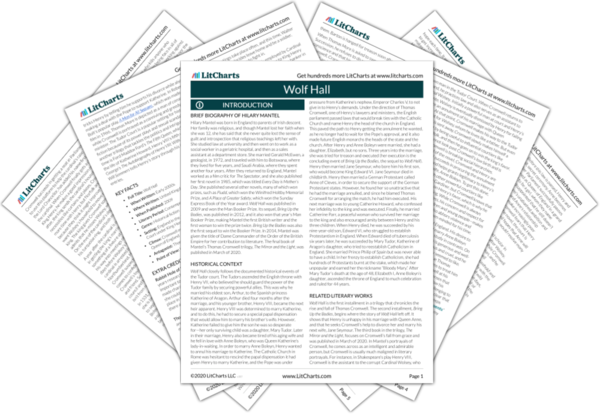The book from Germany that Cromwell is reading is by the theologist Martin Luther, who wrote books and pamphlets that questioned Catholic doctrine. Interestingly, Cromwell doesn’t admire Luther unreservedly—he sees many flaws in Luther’s ideas and presentation, but he is interested in hearing them in any case. Cromwell has met Tyndale and has come to his own conclusions about his character rather than being influenced by the Catholic Church’s verdict on his work as being against religious law. More, on the other hand, has co-authored a book with King Henry against Luther’s ideas and calls Tyndale a “Beast,” which shows More’s rigid ideas on religion and his fanatical adherence to Catholic doctrine. Again, it’s clear that Cromwell and More view ideas in opposing ways.
